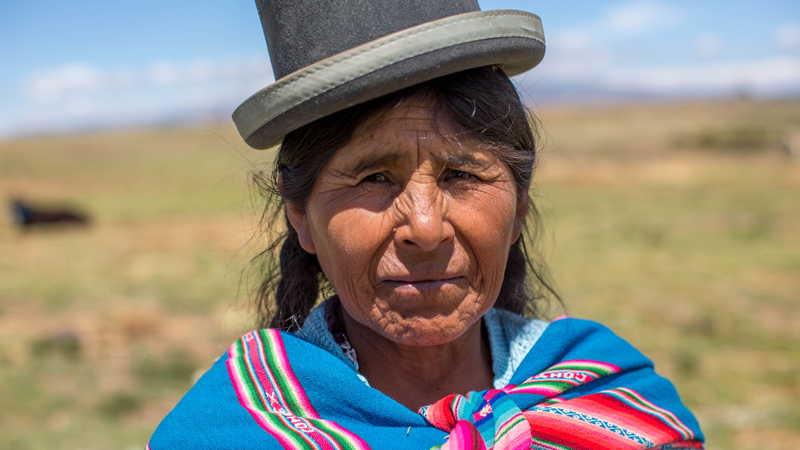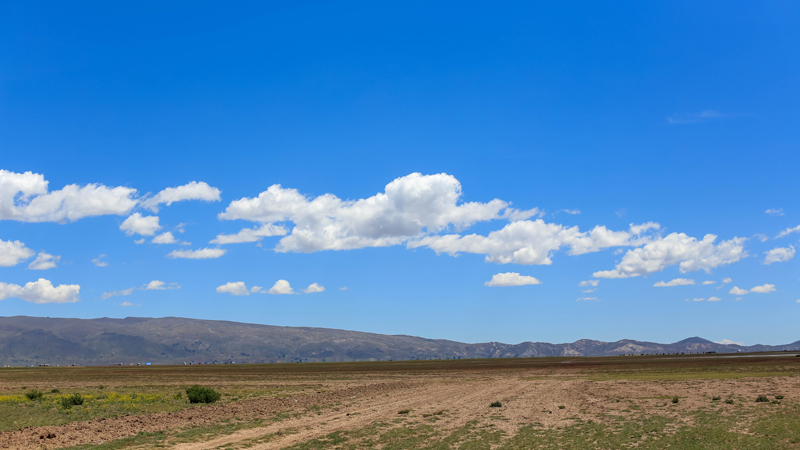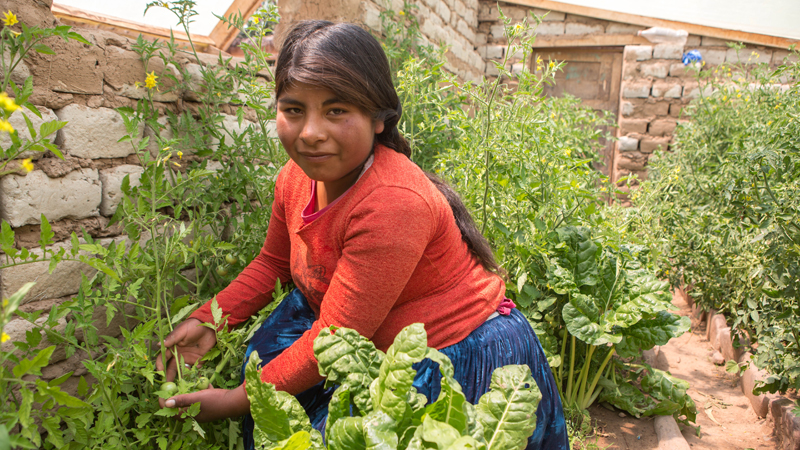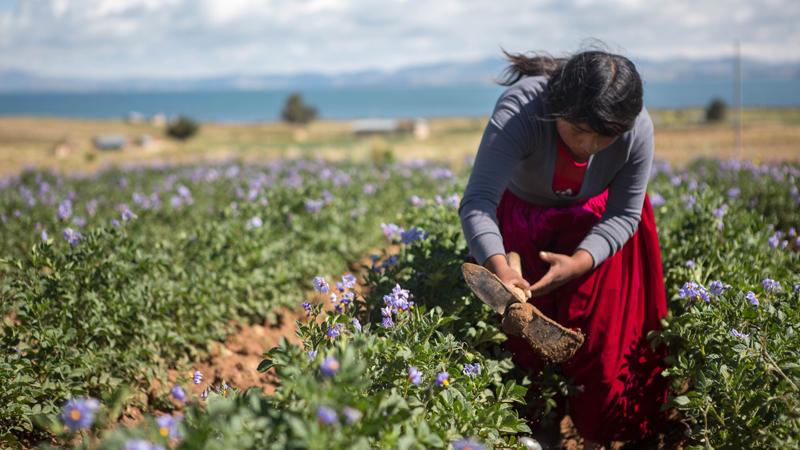World Food Day: Climate is changing. Food and agriculture must too
For the last 70 years, World Food Day has been celebrated on 16 October to raise awareness of all those who suffer from hunger. With our climate rapidly changing, the way we grow food must also change. This World Food Day, Sally Kitchener shares how Susana in Bolivia is working with one of CAFOD’s partners to learn how to adapt to the changing climate.

“God made us from the earth, from the land. And He also told us to work the land.” 58-year-old Susana Marca Escobar furrows her brow as her eyes scan across her farm.
“But the climate is changing. The heat burns the land and the soil is like fire. Our poor little plants, when they are just seedlings, how can they survive?”
Susana has been working the land her entire life. When she was a teenager, she already knew how to grow the staple foods common in this area of Bolivia – potatoes, beans, quinoa and maize.
It has never been an easy job. The Altiplano where she lives is around 12,000 feet above sea level and not only suffers from a lack of water, but from unpredictable hail storms that often appear without warning. The hailstones can devastate an entire field of potatoes in a matter of minutes, wiping out months of hard work and destroying families’ food supply and their only method of earning money.
Donate to help families in Bolivia when their crops are destroyed
The conditions here have always been tough for those who make a living from the land, but Susana remembers a different time.
Changing climate

“Before it was certain,” Susana says softly. “You sowed crops, the rain would come and the crops would grow. We had a good harvest. Now we are working to the same rhythm but there isn’t any rain, so it’s affecting the production.”
The full rains used to arrive in this area of the Altiplano in November, but last year it wasn’t until January that rain fell in Susana’s community.
“The plants are suffering. Our beans are only producing three strings. We are not growing a lot. What can we do to stop this?”
It’s a question that so many across the world are asking themselves. In Bolivia, with as many as one in five people suffering from malnutrition, and almost two in five children in rural areas suffering from stunted growth because they’re not getting the food they need, the changing climate is not an issue that mothers like Susana can ignore.
Don’t ignore our changing climate – give today
With the changing weather making growing food so unreliable, many of Susana’s older children have moved away from the area in search of income and a more stable future. But her youngest daughters, aged 11 and 16, are keen to stay on the land and Susana is determined to help her children find ways to cope with the conditions.
Building a greenhouse

Over the last four years Susana, her husband and their two youngest daughters have begun to find ways to grow more food. They’ve been working with one of CAFOD’s local partners – CIPCA (Centro de Investigación y Promoción del Campesinado – Research and Training Centre for Rural Farmers) to build a greenhouse where they can create their own microclimate for growing vegetables.
The greenhouse is built with a translucent roof that lets in light but keeps out destructive hailstones, and a small window for ventilation. Plastic bottles filled with water line a central path. These warm up during the midday heat, then when night temperatures drop below freezing, the water bottles keep the greenhouse warm and vegetables safe from frost. To combat the arid air, open water bottles are hung from the ceiling and regularly topped up to keep the air humid.
Can you get together with your community and raise £395 to build a greenhouse?
Since building the greenhouse, Susana’s family are now able to grow a whole variety of vegetables, including tomatoes, lettuce, chard and beetroot. It’s enough to give their daughters the vitamins and energy they need to study at school, and there’s some surplus left to sell to neighbours to bring in an income.
Sharing knowledge

The greenhouse is a lifeline both for Susana and for future generations: “All the things I am learning with CIPCA, I am demanding that my children learn these things too. Some of my children, at least, will be here and they will need to know how to grow food in these conditions. Our children need to be prepared and trained to take on all the different problems we are now facing.
“The important thing now is that other people start to replicate the things we have learnt from CIPCA – like how important it is not to use chemicals on our land and how to make our own organic products. But some people are selfish and they don’t replicate them.”
Susana’s not only worried about her immediate neighbours and their individual impact on the climate, but the impact of her global neighbours. “There are people in the world who don’t care for the earth,” she says. “I say to them: ‘You shouldn’t make the earth cry. If you are never going to learn, I think eventually there needs to come a global drought or famine and then we will all learn together.’”